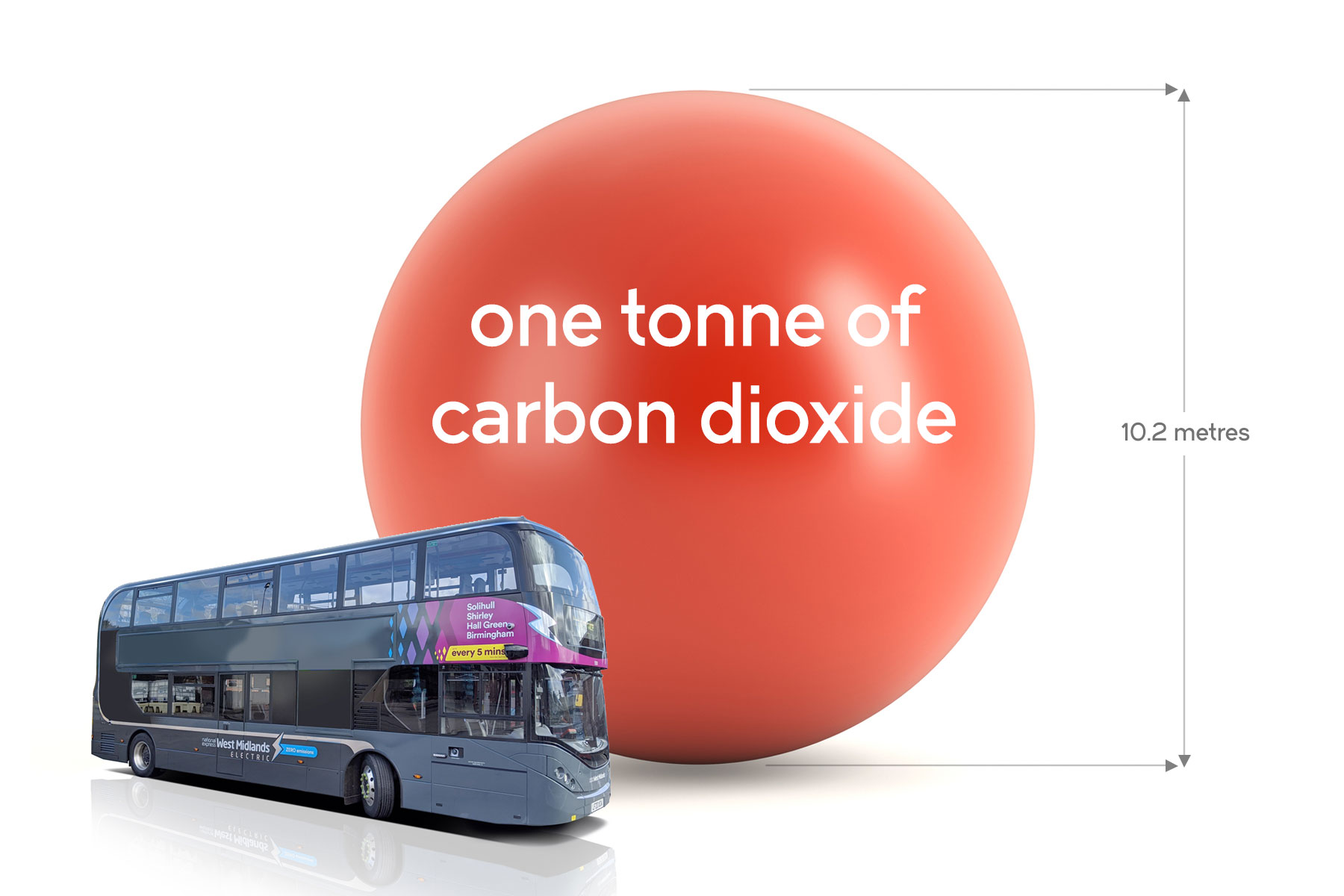
Saving the planet one mile at a time
Published: 29th December 2020
Customers riding the buses in 2020 in Birmingham, Solihull and Coventry have been playing a huge part in fighting climate change.
This summer, we replaced all the buses on our number 6 route - between Birmingham and Solihull - and the 9 in Coventry with fully electric vehicles. So far, this has prevented over 700 tonnes of carbon dioxide going out into the atmosphere.
If that sounds like a lot - it is! One tonne of carbon dioxide would make an enormous bubble over twice the height of a double decker bus.

Our Commercial Director, Chris Gibbens, said:
“We’d like to thank all our customers on the Birmingham-Solihull 6 and the Coventry 9 service. They may not know it, but by getting the bus every day, they’ve made a massive difference to our region’s fight against climate change.
“National Express’ 29 fully electric buses have already clocked up over 429,000 miles since they went out in service in July and August. The carbon emissions from the buses that used to run on those routes would have been over 1,000 grammes per kilometre. But these beautiful British-built buses are powered by renewable energy - so they’re totally zero-emission.
“And don’t forget that even a five-mile journey on a normal diesel bus means you emit half the carbon as you would if you went by car. So getting the bus is the simplest and cheapest thing you can do to fight climate change.”
We promised in February 2020 that they would never buy another diesel bus and the entire fleet would be zero-emission by 2030. The existing 1,600 buses already make up the biggest low-carbon fleet outside London.
We have been working with Transport for West Midlands and Coventry City Council on their electric dreams since 2016. Through the West Midlands Bus Alliance they applied for and won over £5 million from the government’s Ultra-Low Emission Bus Scheme.
We also looking forward to running Birmingham City Council’s 20 hydrogen buses when they arrive in 2021.
“We’d like to thank all our customers on the Birmingham-Solihull 6 and the Coventry 9 service. They may not know it, but by getting the bus every day, they’ve made a massive difference to our region’s fight against climate change.
“National Express’ 29 fully electric buses have already clocked up over 429,000 miles since they went out in service in July and August. The carbon emissions from the buses that used to run on those routes would have been over 1,000 grammes per kilometre. But these beautiful British-built buses are powered by renewable energy - so they’re totally zero-emission.
“And don’t forget that even a five-mile journey on a normal diesel bus means you emit half the carbon as you would if you went by car. So getting the bus is the simplest and cheapest thing you can do to fight climate change.”
We promised in February 2020 that they would never buy another diesel bus and the entire fleet would be zero-emission by 2030. The existing 1,600 buses already make up the biggest low-carbon fleet outside London.
We have been working with Transport for West Midlands and Coventry City Council on their electric dreams since 2016. Through the West Midlands Bus Alliance they applied for and won over £5 million from the government’s Ultra-Low Emission Bus Scheme.
We also looking forward to running Birmingham City Council’s 20 hydrogen buses when they arrive in 2021.
Back to top





